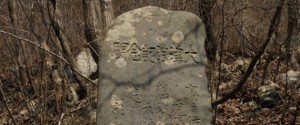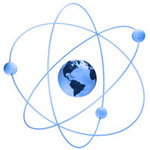We have entered an age where everything has changed except our way of thinking, according to Albert Einstein. “Thus we drift towards unparalleled disaster,” he went on to say. Is that true? Or can we manage risks in this age, through thoughtful behavior, sound public policy, prevention, continuous improvement, international cooperation?
The Japanese people of times past left a gift for their descendants in the form of stone markers.

This marker says: “High dwellings are the peace and harmony of our descendants.” “Remember the calamity of the great tsunamis. Do not build any homes below this point.”
While the marker does not say “Donʻt build nuclear plants below here,” it really shouldnʻt have to. This kind and thoughtful warning was created with the intention of preventing suffering in the future. Many messages come to us every day. Are we listening to the ones that are really important?
The history of the Nuclear Age has been a short one, but a lot of lessons can be drawn from this relatively short journey into the realm of things nuclear. Can we draw from what we have learned to make life safer for our future generations?
